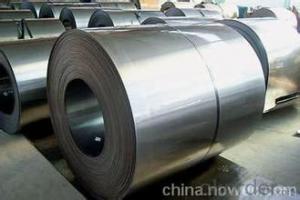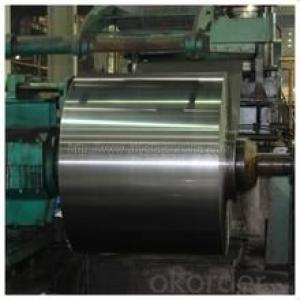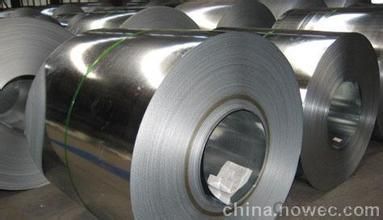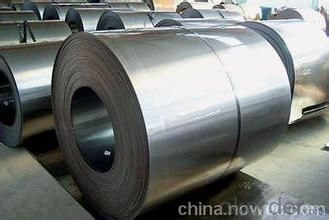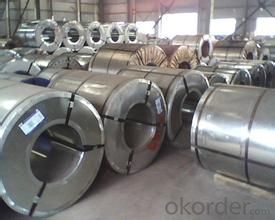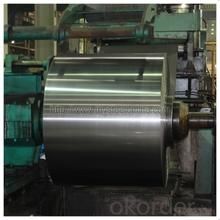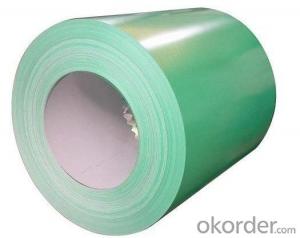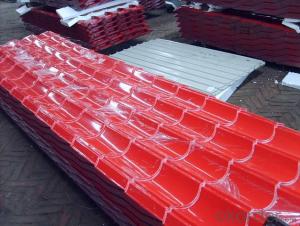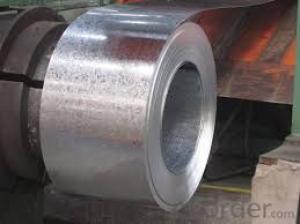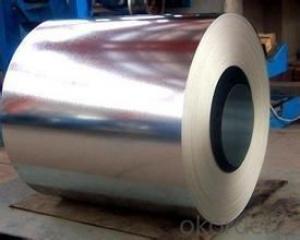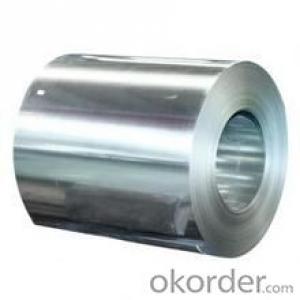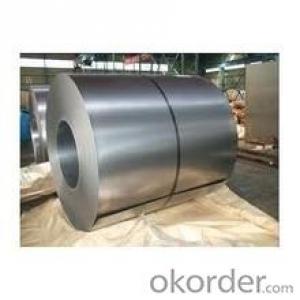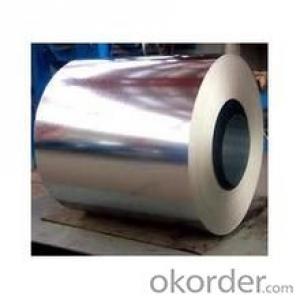hot-dip galvanized/ aluzinc steel SGCC CSA CSB
- Loading Port:
- Tianjin
- Payment Terms:
- TT OR LC
- Min Order Qty:
- 30 m.t.
- Supply Capability:
- 5000000 m.t./month
OKorder Service Pledge
OKorder Financial Service
You Might Also Like
Specification:
1.Mateials:SGCC,DX51D / DX52D /S250,280GD
2.Size:width:600-1250mm(900mm,1215mm,1250mm,1000mm the most common)
thickness:0.15-2.0mm
length:1000-6000mm,as your require
3.Zinc coating :60-180g( as required)
4.Coil id:508mm
5.Coil weight: 3-5MT(as required)
6. Surface:regular/mini/zero spangle, chromated, skin pass, dry etc.
Applications:
Galvalume Coil widely used for roofing products, It is also the ideal base material for Prepainted Steel Coil.
1. roofing
2. gutters
3. unexposed automotive parts
4. appliances
5. furniture
6. outdoor cabinetry
Images:
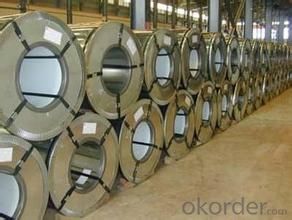
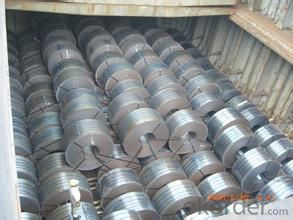
Hot-dip galvanized steel coils are available with a pure zinc coating through the hot-dip galvanizing process. It offers the economy, strength and formability of steel combined with the corrosion resistance of zinc. The hot-dip process is the process by which steel gets coated in layers of zinc to protect against rust. It is especially useful for countless outdoor and industrial applications.
- Q: so what is stronger tempered steel Blade or carbon steel Blade? a Machete made of those i said above what will last longer,what can cut better,which will will shatter first.
- 1. all steel blades are tempered, whether they are high carbon blades or low carbon blades. 2. It depends on what kind of steel they are made from. So im going to answer this question, using the following qualifications. 440A stainless steel 440C stainless steel - high carbon. The higher the carbon level, the more brittle a blade becomes. But the higher the carbon level, will increase a steel’s wear resistance , meaning it will have a better edge retention 2. They both will work well. Pros's / Con's The 440C blades will need less sharpening, but are harder to sharpen The 4401 blades will need to be sharpened more, but are far easier to resharpen. So it basically comes down to where you will be using them and how you will be using them. If your gonna be out in the middle of the jungle and stopping for the night, then the high carbon blade would probably be better, you use it all day, resharpen it at night. If your gonna be cutting brush, tobbaco, etc on your land, then the 440A would be better, because you can take a couple of min's to resharpen it often
- Q: Are steel coils used in the packaging industry?
- Yes, steel coils are commonly used in the packaging industry for various applications such as strapping, bundling, and securing heavy loads.
- Q: So I'm trying to decide which is better. I've always had aluminum on my 6 yr old tb gelding as I do hunters on him. He's never had steel on but I've recently moved and the shoer here is more expensive. So is aluminum really worth the extra cash to keep him light on his feet or is steel really not that much different?
- It really depends on your horse. If you horse is a good mover, and average weight steel shoe shouldn't make much of a difference. If the horse is a mediocre mover, sometimes the added weight will make it move worse. You should also understand that one steel shoe is not like another steel shoe- they come in different widths of web and thickness of steel. Some horses that don't do well in regular shoes do better in a light rim shoe or training plate. Discuss your concerns with your farrier, but he/she doesn't have a crystal ball. You may just have to try steel for a cycle and see how your horse does. When I am shoeing a horse that needs lighter weight steel, I tend to use either St. Croix's Lite Rim shoe or steel Concord training plate, or Kerckaert's DR training plate or the Triumph Lite steel shoe. All of these shoes are light weight, have decent traction and good break over.
- Q: What are the advantages of using hot-rolled steel coils?
- Hot-rolled steel coils offer several advantages, including improved strength, durability, and formability. The high temperature during the rolling process allows for better shaping and molding, making it suitable for various applications. Additionally, hot-rolled steel coils have a smoother surface finish and are more cost-effective compared to cold-rolled steel coils.
- Q: How are steel coils used in the production of food processing equipment?
- Steel coils are used in the production of food processing equipment as they are shaped and formed into various components such as frames, supports, and panels. These coils provide strength, durability, and stability to the equipment, ensuring its reliability and longevity in the demanding food processing environment.
- Q: Which one is stronger steel or metal ( for bow and arrows) please answer I need it for a book I'm writing
- Steel is a metal.
- Q: How would you calculate the maximum plastic deformation (expansion) a steel pipe can handle before it actually fails?
- You can calculate the maximum reversible strain, for elastic loading as follows: You need to look up the yield strength (for that particular type of steel). Divide this yield strength by the elastic modulus of steel (also called Young's modulus). That gives you the strain at the onset of yielding, the maximum you can strain the steel fibers before crossing the point of no return. If you are interested in the strain until failure, you need to take tensile test measurements. Seldom do people document an equation to model the non-elastic portion of the stress-strain curve of the specimen, because seldom do we design systems to operate with materials which yield. We want systems which only deform reversibly and elastically. This means you need to perform an experiment to find what you are actually desiring to know.
- Q: the difference between the original steel and mild steel from percentage of carbon
- As the first answers suggest, the prolbem is that these terms are not specific, they are not scientifically or technically defined. This is like asking: what is the difference between a four door car and a sedan? There are hundreds of steel alloys ranging from Fe + a little C + very little else to alloy and tool steels with significant amounts of Cr, Ni, Si, and a number of other elements + C. And... for any given steel alloy, there are many different ways to heat treat it. A given piece of steel can be heat treated so hard and brittle that it could shatter like glass and then it could be heat treated to make it into a spring or heat treated to make it stretch like taffy. If you really want to understand steels, yes, there are lots of books on sword making (some written by people who actually understand steels) but... you need to study metallurgy. There are graduate level courses just on the metallurgy of steels. Of course to understand this course you need to understand a whole lot of fundamental metallurgy. All this stuff on steel makes perfect sense because, in terms of weight (tonage) produced, steel is, hands down, nothing else remotely comes close, the most important metal humans have.
- Q: What's the best way to clean granite countertops and stainless steel appliances? My countertops especially always look dull and streaky. Thanks!!!!!!!
- I just use my Method brand dish soap to clean my stainless fridge. Then polish it with a dry soft cloth. Then it also smells like cucumber when I'm done. :-)
- Q: Hey Guys, I'm planning on purchasing a bmx bike and I have been recommended by many people the Kink Launch 2012. I'm thinking of getting it but the frame is made from High Tensile steel and I know the chromoly is stronger and more expensive, but I plan to use my bmx just to chill, ride with friends and some times go through dirt trails at my park, I would like to know, how strong Hi Tensile steel is and can it handle jumps not massive jumps but like jumps where you get like 3 feet high (1m) just for fun, I might go to the skate park but I'm not gonna do tail whips and massive jumps, I just want it as a mobile piece of transportation. I don't want to buy a mtb because I already had 3 of them and they are not practical to take with you on holidays.So, do you think the Kink Launch 2012 is good enough or should I cough up an extra $80 and get the gap ($500 AU)? As I said I ain't gonna do huge jumps.
- High tensile steel could mean almost anything. SAE 4130 Chrome-Moly steel is the de-facto standard for steel bikes frames. High tensile steel could actually mean the same thing since chrome-moly is classified as high strength steel. The strength of the frame depends as much on the quality of the welds and on the size/thickness of the tubing as much as anything else. I'd say what kind of steel you use makes only a minor difference. One reason you want to buy bikes from reputable name-brand companies is they tend to have strict quality controls, this is particularly important when it comes to welds. Welds are always the weakest part of any bike frame, don't let anyone tell you different. 99% of the time if something in the frame breaks, it'll be at the welds. hope this helps.
Send your message to us
hot-dip galvanized/ aluzinc steel SGCC CSA CSB
- Loading Port:
- Tianjin
- Payment Terms:
- TT OR LC
- Min Order Qty:
- 30 m.t.
- Supply Capability:
- 5000000 m.t./month
OKorder Service Pledge
OKorder Financial Service
Similar products
Hot products
Hot Searches
Related keywords
